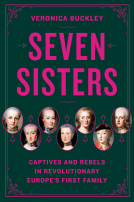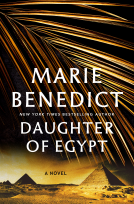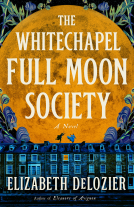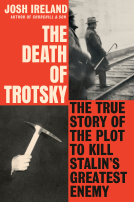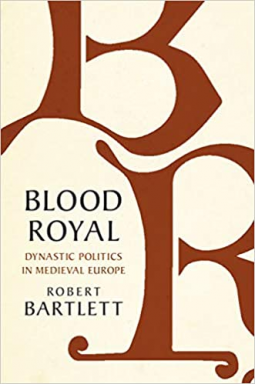
Blood Royal
Dynastic Politics in Medieval Europe
by Robert Bartlett
This title was previously available on NetGalley and is now archived.
Send NetGalley books directly to your Kindle or Kindle app
1
To read on a Kindle or Kindle app, please add kindle@netgalley.com as an approved email address to receive files in your Amazon account. Click here for step-by-step instructions.
2
Also find your Kindle email address within your Amazon account, and enter it here.
Pub Date Aug 25 2020 | Archive Date Sep 09 2020
Talking about this book? Use #BloodRoyal #NetGalley. More hashtag tips!
Description
Throughout medieval Europe, for hundreds of years, monarchy was the way that politics worked in most countries. This meant power was in the hands of a family - a dynasty; that politics was family politics; and political life was shaped by the births, marriages and deaths of the ruling family.
How did the dynastic system cope with female rule, or pretenders to the throne? How did dynasties use names, the numbering of rulers and the visual display of heraldry to express their identity? And why did some royal families survive and thrive, while others did not?
Drawing on a rich and memorable body of sources, this engaging and original history of dynastic power in Latin Christendom and Byzantium explores the role played by family dynamics and family consciousness in the politics of the royal and imperial dynasties of Europe.
From royal marriages and the birth of sons, to female sovereigns, mistresses and wicked uncles, Robert Bartlett makes enthralling sense of the complex web of internal rivalries and loyalties of the ruling dynasties and casts fresh light on an essential feature of the medieval world.
Available Editions
| EDITION | Hardcover |
| ISBN | 9781108490672 |
| PRICE | $34.95 (USD) |
Average rating from 13 members
Featured Reviews
 Alexandra R, Reviewer
Alexandra R, Reviewer
It is an interesting look at both men and women in the medieval world and not just about one or the other. Talks of heirs, queens away from home, alliances, burials, use of astrology and more. An introduction to different people and situations. Good for those who like this time period.
 Barbara S, Reviewer
Barbara S, Reviewer
Robert Bartlett writes books that are thoroughly researched and well written. This book "Blood Royal" is everything you ever wanted to know about European royalty. Not just Britain but the continent too. What I love about this book is it has a lot of material about women. Women as in marriage, childbirth, mistresses, illegitimate children, legitimate children, death in childbirth, and most interesting women sovereigns. It even addressed the homesickness of a teenaged bride leaving everything she knows and going to a strange land with strange customs and a language she does not speak to marry a man she does not know. Also, she was expected to put a brave face on it and make the best of it. Not for me or my daughters, thank you. There is so much information I did get bogged down and it took me a while to read this book but it was worth it. Thank you to NetGalley and the publisher for allowing me to read this book in exchange for a review.
 Moniek B, Media/Journalist
Moniek B, Media/Journalist
With a focus on medieval Europe, Blood Royal by Robert Bartlett takes on the system of monarchies and how families were shapes by births, marriages and deaths. Monarchies were the essence of medieval Europe.
It is an in-depth look at the way monarchy works, and I was delighted to find that the book did not solely focus on the United Kingdom. The research can only be described as meticulous as about a third of the book's pages are for the many, many sources. This book would have worked well, but I found it quite dry, and after a while, I was flipping through to the next chapter hoping it would be a little bit more enticing.
Overall, it is an excellent reference work but not quite suitable for the casual reader.
This will make a must have resource / reference for those with a penchant for medieval history. It is extremely well researched - so all the hard work is done for you - and is extensively noted with a comprehensive bibliography. There are many unique examples peppered throughout to support the information - so not just the standard, more familiar dynasties - which is easy to both read and understand.
Definitely on for my own personal library.
 Alexis A, Reviewer
Alexis A, Reviewer
A very detailed look into the practicalities of blood succession and monarchies. While most people commonly understand that monarchs were usually male, and usually preferred sons, this book delves into the nitty gritty of what made monarchies function. While the approach is scholarly, a casual reader should be able navigate the text pretty easily, though it is a bit dry. The focus of the book is broken up by subject and any ruler that fits the subject is discussed within that chapter. This will make it easy for a student to turn to the relevant chapter and read the examples of say a king co-ruling with a crowned son during his lifetime, but makes for a somewhat confusing and distracting approach for someone reading it cover to cover. Monarchs come up and then the focus skips ahead a century, then the next chapter that previously discussed monarch reappears again without much introduction. With so many similarly named monarchs, jumping from country to country and century to century can be frustrating to read and keep track of. This is really my only complaint about this well researched and interesting book. It adds a lot of insight into how biology contributed to the state of nations, and how each monarch and their respective monarchy differed from others in subtle ways. Definitely a great read for those interested in how ancient monarchies functioned, and how they have shaped both past events and the basis for surviving modern monarchies.
636 pages
4 stars
Don't worry, the book is nearly half extensive citations and a copious bibliography. The author does a remarkable job researching his subject. Frankly, I was surprised to see just how much intensive studying he must have done to put this book together.
The focus of this book is what we call the “Middle Ages.” The reader learns about the importance of making the “right” marriage and having the all important sons to inherit the throne. Certainly a woman could not effectively rule. The debate about marrying within the realm or taking a bride from another kingdom was very interesting. I did not realize that it was such an important factor in choosing a bride. There are other subjects covered as well, speaking of many aspects of kingship.
However, the only drawback I can comment on is that the text is so dry I could hear the rustling as I turned the pages on my Kindle. I recommend this book not for the casual reader, but for the serious student of this period in time.
Very well done, Professor Bartlett.
I want to thank NetGalley and Cambridge University Press for forwarding to me a copy of this fascinating book for me to read, enjoy and review.
Readers who liked this book also liked:
Elizabeth DeLozier
Historical Fiction, Mystery & Thrillers, Sci Fi & Fantasy
